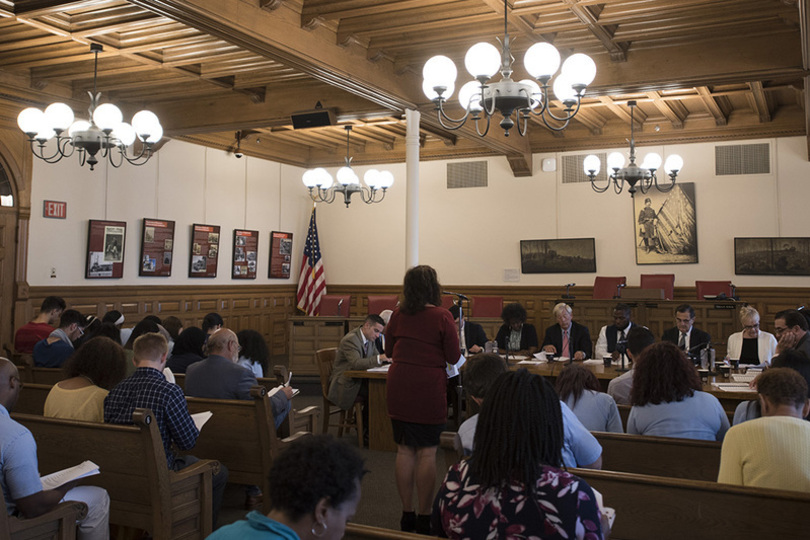Mayor Walsh’s 1st budget proposal keeps tax rate flat, cuts department spending

Mayor Ben Walsh’s total proposed budget spending is $245 million, excluding funding for the Syracuse City School District. The Daily Orange File Photo
Syracuse Mayor Ben Walsh plans to keep the city’s property tax rate flat, cut spending and freeze hiring in his first budget proposal as mayor.
Walsh presented his 2018-19 budget at Monday’s meeting of the Common Council. The budget includes a freeze on hiring and salary increases not included in the budget, as well as $2.8 million in cuts to departmental spending. The cuts, combined with $11 million from the city’s reserves, will allow the city to set aside funds for hiring new police officers and firefighters.
“The significant challenges our city faces will not be addressed in a single year. We need a long-term strategy, so this budget is really the first in a multi-year plan,” Walsh said at the meeting.
The total proposed budget spending is $245 million, excluding funding for the Syracuse City School District. That’s more than $3 million less than last year’s budget.
The city was expected to run a $16.5 million deficit, but Walsh’s budget puts next year’s deficit at $11 million.
“The good news is that’s lower than some early predictions, but the bad news is it’s unsustainable” Walsh said in an interview with The Daily Orange on Monday afternoon. “We know we cannot continue to operate at a deficit, but we think that we’re putting the right pieces in places to work towards eliminating that deficit.”
Walsh said he will seek assistance from the Financial Restructuring Board, a state panel that provides non-binding consultation to cities that are struggling financially. Working with the FRB allows the city to apply for $5 million in grants to implement the panel’s recommendations. Albany and Rochester have used the FRB in the past.
If a city’s deficit becomes too large, a state financial control board can take over a city’s finances to return the city to financial solvency.
The mayor also plans to increase city revenue through the enforcement of existing ordinances, such as housing code violations. A forthcoming Municipal Violations Bureau is expected to help the city lessen its backlog of such violations, Walsh said.
Austerity measures, like the hiring freeze and departmental spending cuts, will help the city “achieve fiscal sustainability,” Walsh said.
Improving neighborhood safety is another key component of the budget proposal. The city has hired 25 to 30 new police officers this year, and the budget will add an additional class of officers. Included in the budget are funds for additional police body cameras and new emergency vehicles.
The budget would also provide $750,000 for the Greater Syracuse Land Bank, a nonprofit organization that acquires abandoned and tax-delinquent houses and puts them to productive use by selling them for redevelopment, or demolishing them and repurposing the land.
Last May the council voted to remove the $1.5 million that had been allocated from the city budget for the Land Bank every year since its creation in 2012. An additional $500,000 will be used to “address blighted properties and demolitions,” Walsh said.
Funds from the budget will go toward fact-tracking Syracuse Build, one of Walsh’s first-year initiatives. Syracuse Build, a workforce development program, is designed to give city residents jobs on construction projects, including planned changes to Interstate 81. Walsh said the city is working to train residents and put them on worksites this year.
The council will deliberate on spending for each department in the next three weeks before submitting its budget. The first of Syracuse’s budget hearings will begin Tuesday, April 10.
The hearings are open to the public and, for the first time, will be live streamed through the city’s website and YouTube channel.





